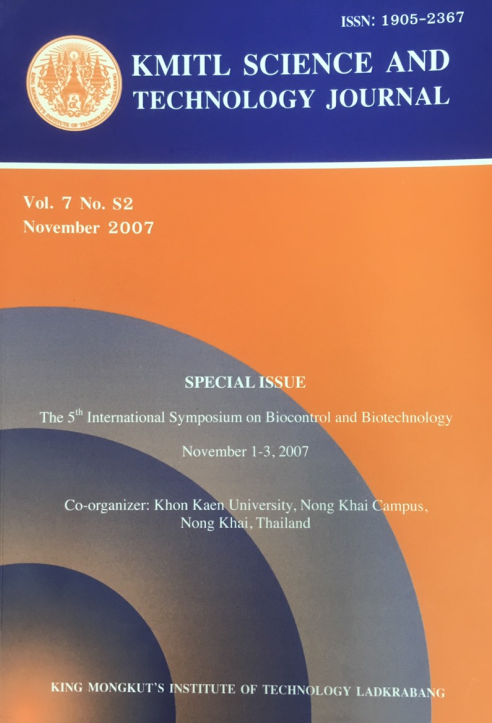Soy sauce is one of the flavoring agent product which was produced by the fermentation process of Aspergillus oryzae with a combination of soy bean, wheat flour and salt. The aim of this work is to analyse the amino acid contents in soy sauce produced from the mixture of peagion pea and soy bean compared with the original production process. In this study the protease enzyme was also monitored to evaluate the fermentation process. The soy sauces were prepared from 6 formulas by varying the ratios between peagion pea and soy bean : 100 : 0 (F1) , 80 : 20 (F2), 60 : 40 (F3), 40 : 60 (F4) , 20 : 80 (F5) and 0 : 100 (F6) (control). After the koji process, those koji molds were fermented with saline 20 % (w/v) for 90 days. The protease enzyme was analysed between the fermentation process at 0, 10, 30, 60 and 90 days by spectrometry. The amino acid contents were analysed by high performance liquid chromatography. The result showed that F5 moromi gave the highest content of glutamic acid and the content decreased as the ratio of soy bean decreased. The protease content in all formulas also increased as fermentation time increased. The peagion pea which was cultivated for animal food could be used as the replacement of soy bean to produce the value added product like soy sauce.
Keywords: soy sauce, soy bean, peagion pea, koji, Aspergillus oryzae, protease, amino acid
Corresponding author: E-mail: pornpi@swu.ac.th
Muangthai*, P. ., Upajak, P. ., & Patumpai, W. . (2007). STUDY OF PROTEASE ENZYME AND AMINO ACID CONTENTS IN SOY SAUCE PRODUCTION FROM PEAGION PEA AND SOY BEAN. Current Applied Science and Technology, 106-112.

https://cast.kmitl.ac.th/articles/86820